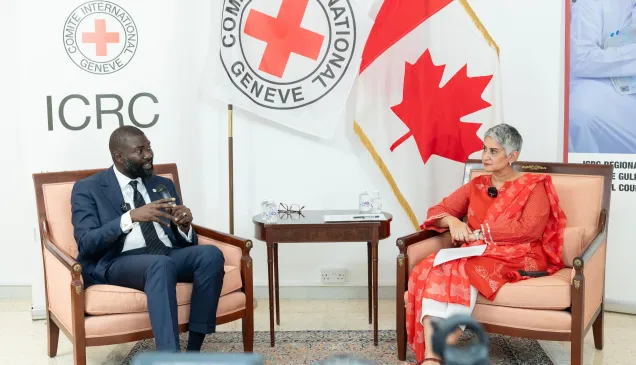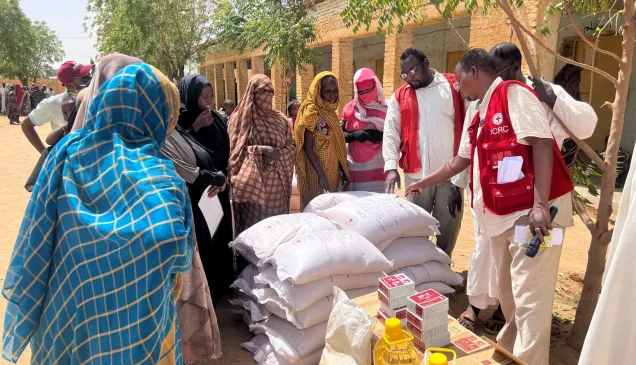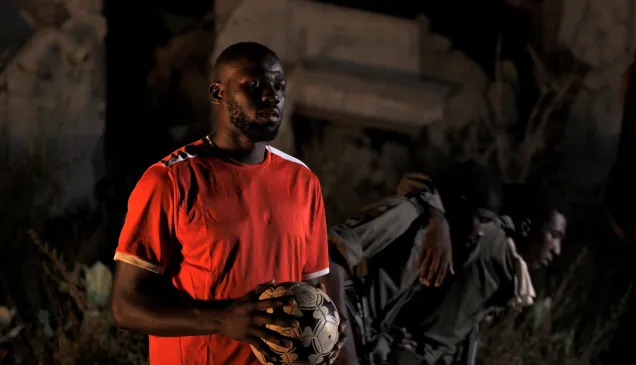Addis Ababa, 31 October 2019: The Peace and Security Department of the African Union Commission (AUC) and the International Committee of the Red Cross (ICRC), held the biennial seminar on International Humanitarian Law (also known as the law of armed conflict) at the AU headquarters in Addis Ababa. The meeting brought together the AU Member States, experts, the UN Agencies, and partners.
The meeting, among others sought to deepen participants' understanding of International Humanitarian Law (IHL), specifically in relation to the effects of the use of Explosive Weapons in Populated Areas (EWIPA).
The meeting featured statements by H.E Ambassador Baye Diop, Ambassador of the Republic of Senegal to the AU, and co-chair of the seminar; H.E Ambassador Sebade Toba, Ambassador of the Republic of Togo to the AU, the Director for Peace and Security, Dr. Admore Kambudzi, and Mr. Bruce Mokaya, ICRC Head of Delegation to the African Union.
In his statement, H.E Ambassador Baye Moctar Diop noted that protection of civilians in all circumstances and, more specifically in armed conflicts must be an absolute priority both for States, and non-sate armed groups. He also observed that protection of civilians and their properties is essential, and that the Republic of Senegal fully supports all initiatives aiming at sustainably ensuring protection of civilian in armed conflicts.
On the other hand, Dr. Kambudzi highlighted the importance of addressing the issue of explosive weapons in populated areas, within the Silencing of the Guns by 2020 initiative, and stressed the need for the implementation of the aspirations of the Maputo communique. Mr. Mokaya noted that wars are increasingly being fought in urban areas, and fighting parties are using explosive weapons designed for use in battlefields, such as large bombs, mortars, missiles in cities, towns and other populated areas. He also noted that those explosive weapons have wide-area effects that are indiscriminate and cause grave harm to civilians.
Participants noted the grave humanitarian consequences explosive weapons have when used in populated areas, both directly, such as death and injury of civilians or destruction of civilian objects; but also indirectly such as the disruption of essential services caused by destruction of critical infrastructure. They also discussed challenges to the applicability of the law of war in the context of urban warfare and the use of explosive weapons.
While underlining the commitments taken by African states in the Maputo communique of 28 November 2018, and subsequently the communique of the AU Peace and Security Council (PSC) at is 859th meeting on 17 July 2019, participants proposed that AU Member States should be at the forefront of promotion of legal instruments and good practices on the use of EWIPA. In this respect, participants recommended for discussions on the subject to continue amongst Member States, including the PSC, with the aim to come up with a common African position on the ongoing global humanitarian and policy advocacy on EWIPA.
For further information, please contact:
Lulit Kebede, African Union, e-mail: lulitk@africa-union.org, tel: +251 911 21 11 83
Yohamin Teshome, ICRC, e-mail: tyohamin@icrc.org, tel: +251 922 566703



